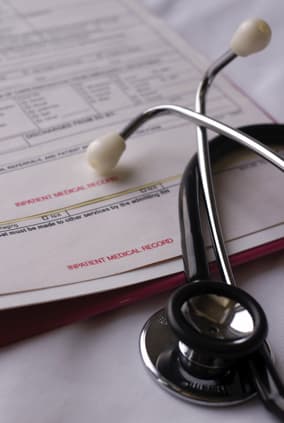
TREATMENT OPTIONS FOR CANDIDA
It is important to have a thorough discussion with your healthcare provider regarding the benefits and risks of different options for candida treatment:
1. Conventional Therapies
2. Naturopathic Therapies
It is important to have a thorough discussion with your healthcare provider regarding the benefits and risks of different options for candida treatment.
1. CONVENTIONAL CANDIDA THERAPIES
The allopathic community unfortunately does not recognise candidiasis as an infection that could cause various symptoms such as those mentioned here. However the general mode of treatment is strong antifungals for a short amount of time such as nystatin.
2. NATUROPATHIC CANDIDA THERAPIES
The naturopathic approach to candidiasis at our clinic involves:
- First identifying the root cause of the symptoms that you may be suffering
- Treating your symptoms using natural therapies (such as herbal medicine, diet, vitamin supplements, acupuncture and homeopathy) based on your clinical intake and laboratory testing
- Improving the “ terrain “ / body’s immunity so that you are less susceptible to pathogenic factors in the future
Quite often people call the clinic thinking that they have candidiasis after they have filled the Candida Questionnaire and scored too high. A number of different health concerns could cause an individual to score quite high on the Candida questionnaire. At your first consultation, your naturopath will go through all your symptoms individually and in great detail.
She may recommend some laboratory testing to confirm a systemic candida infection or an overgrowth of yeast in the digestive tract and suggest some simple changes to your diet (if necessary) or suggest some lifestyle changes or natural supplements at the end of your consult. Dr. Shah, our naturopathic doctor at the clinic will provide an individual treatment plan for you once all the results are in. *
DIET
Diet is one of the biggest factors that has achieved quite a bit of attention as far as Candida infections are concerned. Various anti – Candida diets have been formulated, however most of these have the following recommendations:
- Reduce / eliminate intake of sugar, refined products, milk and other dairy products, foods containing high contents of yeast, mold, and food allergens. In the clinic we perform a food allergy test – a blood test that identifies foods you maybe intolerant to, and once these are identified, they are eliminated from the diet for a short period of time to allow the body to decrease the inflammatory reaction and heal the gastrointestinal tract, this in turn helps to clear up various other symptoms that one might be experiencing due to an intolerance to food such as eczema, sinus problems, headaches, joint pain and various other symptoms. For more information, please visit our Online Allergy Center
- Increase intake of natural foods that have antimicrobial and anti-fungal properties such as garlic, oregano, coconut oil, etc
- Restore good intestinal flora / probiotics
- Improving digestive secretions
- Restore immunity:
1) Ensure adequate dietary intake of antioxidant nutrients
2) Improve thymus gland activity
3) Promote regularity and detoxification of the body
SUPPLEMENTATION
The following supplements have been found to be useful for Candida infections, and may not be helpful if not taken in the right dose and form. Please discuss your symptoms with the primary care physician before taken any supplements.
- Caprylic acid
- Berberine containing compounds – goldenseal, barberry and Oregon grape
- Pau D’ Arco/ Taheebo
- Boric acid douches
- High doses of Garlic – in raw state or pills
- Enteric coated volatile oil preparations – If taken you should be careful of the dose as improper dosing can cause various problems in the gastrointestinal tract such as gastritis
- Probiotics – Good bacteria for the gastro intestinal tract. Oral supplementation with lactobacillus casei subspecies rhamnosus (LGG) has been shown to reduce the incidence and intensity of enteric colonization by Candida species in very low birth weight neonates. Probiotics also enhance the body’s immunity making it harder for Candida and other pathogenic species to grow out of control.
NEED MORE INFORMATION? Think you might have an overgrowth of Candida? Please call the clinic to schedule a visit at 416 913 4325 or email us at [email protected]. We can help diagnose and treat it successfully with alternative therapies.
* DISCLAIMER: The information on this article is the property of Dr. Sushma Shah, Naturopathic Doctor, and is not intended to treat, diagnose or cure any diseases or promote any services or products mentioned on the website.
Related Articles
Candida Questionnaire
Constipated? Bloated and gassy after eating? Unexplained diarrhea? Constant carbohydrate cravings? You could be suffering from Candidiasis! Take our Candidiasis Test and find out.
Comprehensive Digestive Stool Analysis
The Comprehensive Digestive Stool Analysis (CDSA) is the original non-invasive evaluation of gastrointestinal function that includes analyses of digestion, absorption, bacterial balance, yeast and parasites.
Probiotics
Probiotics are beneficial bacteria that reside in the gastrointestinal tract. At least 400 hundred species colonize the human gastrointestinal tract. Our digestive systems are constructed on the basis of this symbiotic relationship with these friendly bacteria.




